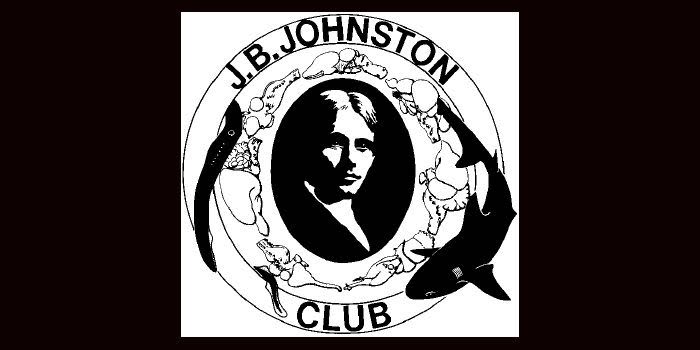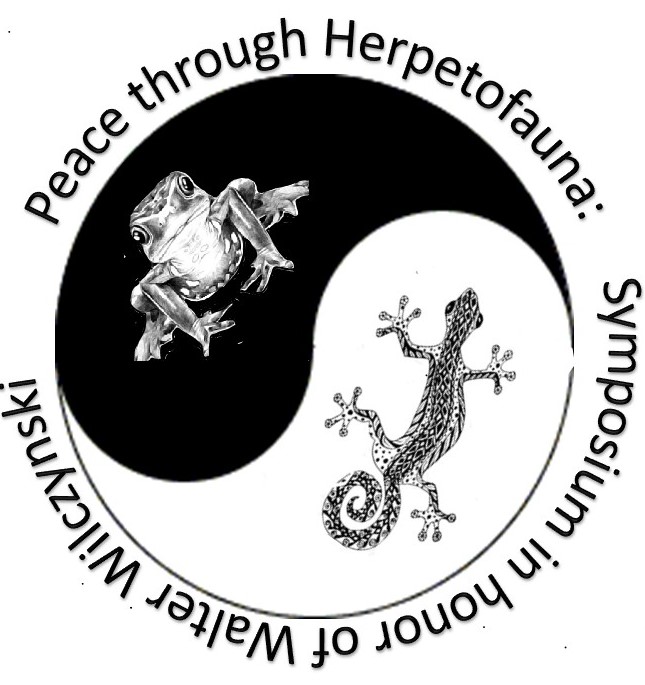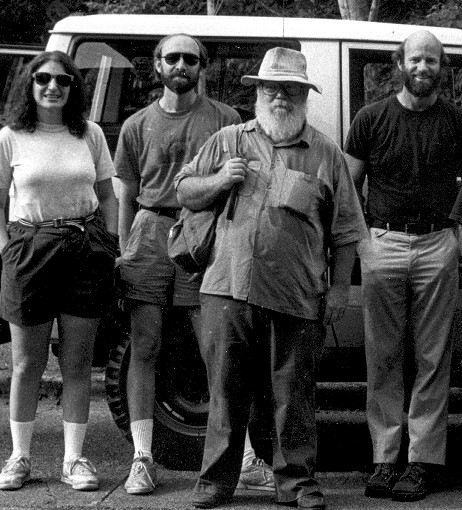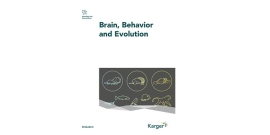

JBJC Spring Virtual Symposium - Peace through herpetofauna
A tribute to Walt Wilczynski
 Welcome to the 2021 Spring Virtual Symposium of the J.B. Johnston Club for Evolutionary Neuroscience
Welcome to the 2021 Spring Virtual Symposium of the J.B. Johnston Club for Evolutionary Neuroscience
We are excited to have you join this virtual symposium entitled: Peace through herpetofauna: A tribute to Walt Wilczynski. We look forward to bringing you an interesting and inspiring day of science. This virtual symposium is organized by Kathleen Lynch and Blinda McClelland and will be held on the 2nd April 2021.
Logo courtesy of the Wilczynski Lab

Photo courtesy of Mike Ryan
Walt Wilczynski was the type specimen of a neuroethologist, as well as a former editor of Brain, Behavior and Evolution (BBE), a program officer at National Science Foundation (NSF), and director of the Neuroscience Institute at Georgia State University. He authored 110 primary publications, co-wrote or edited 2 books, numerous book chapters, and other assorted reviews or commentaries. Walt did his graduate training with Professor Glenn Northcutt at the University of Michigan where he completed the first, and still definitive, studies of the anatomy and connectivity of the striatum in frogs. In 1979, Walt joined the lab of Professor Robert Capranica at Cornell University as a postdoctoral fellow to pursue his growing interest in sensory processing in the midbrain of frogs. In 1983, Walt, Mike Ryan and Harold Zakon were all hired at the same time at the University of Texas (UT). His 20+ years at UT were fun and productive. A long and fruitful collaboration was formed when Walt and his students and postdocs joined forces with Mike Ryan and Stanley Rand, helping to uncover the fascinating story of sexual selection and communication in Túngara frogs, making it a classic story in brain, behavior, and evolution. Even though Walt’s contribution to these studies was mostly lab work, he did join numerous field expeditions in Gamboa, Panama, and made several excursions with his wife Debbi into the interior of Panama. Walt and Mike wrote a book on integrative animal behavior and initiated a number of other research projects that ended in failure, but, thankfully, there is not enough space here to enumerate them. Walt looked for new challenges in 2005 and moved to Georgia State University (GSU) to serve as the Co-Director for Research for the Center for Behavioral Neuroscience. He was instrumental in establishing the Neuroscience Institute at GSU in 2008, and served as its founding director for 6 years before returning to teaching and research. In 2016, Walt was awarded a Fulbright Fellowship to work with Dr. Mario Penna at the Programa de Fisiologia y Biologia of the University of Chile. This Fellowship gave him the opportunity to combine his passion for mentoring students and his love of field work, while experiencing the beautiful mountains in the vicinity of Santiago.
More important than his many academic accomplishments, however, Walt was a much loved friend to those of us fortunate enough to have known him well and no memorial for Walt would be complete without discussing his sense of humor. Walt had a keen sense of the absurd in life, together with a master’s sense of comic timing in telling humorous anecdotes and setting up long-form jokes. Many is the time Walt, Harold and Eliot scared the Spring Peepers into silence when we all started laughing as jokes passed among us. Walt was just fun to be around, and spending hours out at night listening to Peepers in the cold Ithaca spring rain seemed worthwhile because of the late-night beers and jokes that we shared with Walt afterward. In polite company, Walt could come across as quiet and low key, but those who knew him well could see the wheels turning and looked forward to his keen observations when it was just us. Walt combined intellectual curiosity, encyclopedic knowledge, and genuine enthusiasm for doing research; conversations in the lab often led to ideas that we all wanted to test together. He was beloved by his own graduate students and postdocs, and his great productivity was possible because of the fantastic group of people that he trained who then went on to their own professional successes. His colleagues valued him as a leader and someone in whom they could trust. He was loyal and devoted to those fortunate enough to be counted among his friends. He will be missed by all those who came in contact with him.
Excerpts from BBE obituary by Eliot Brenowitz, Mike Ryan, and Harold Zakon,
J.B. Johnston Club for Evolutionary Neuroscience Spring Virtual Symposium
Friday, April 2, 2021
Schedule (Times are EDT)
Session 1: Undergraduates and graduate students that worked with Walt Wilczynski
10:00 – 10:10am Introduction & Welcome, Kathleen Lynch & Blinda McClelland
10:10-10:40am The Neuroecology of Alternative Reproductive Tactics: Interactions Between Spatial Cognition and Monogamy
Alex Ophir (Cornell University)
10:40-11:10am Sickness and the social brain: microglia, microbes, and neural development
Staci Bilbo (Duke University)
11:10-11:40am The hunger artist: Intero- and exteroceptive cues shape vocal effort in the singing mouse
Steve Phelps (University of Texas at Austin)
11:40-12:10pm Frognition: Poison Frogs and the Ecology of Spatial Memory
Sabrina Burmeister - (University of North Carolina Chapel Hill)
12:10- 12:30pm Panel Discussion, Q & A
12:30-2:30pm Lunch Break & Hearing Memories from Friends and Colleagues of Walt Wilczynski
-12:30-12:40pm Elliot Albers - Center for Behavioral Neuroscience (Georgia State University)
-12:40-12:50pm Andy Bass - (Cornell University)
-12:50-1:00pm Laura Carruth - (Georgia State University)
Session 2: Postdoctoral fellows that worked with Walt Wilczynski
2:30 – 3:00pm Context-dependent effects of T-pulses on vocal and spatial behavior
Cathy Marler - (University of Wisconsin)
3:00-3:30pm Frequency-specific auditory directional sensitivity of Northern saw-whet owls
Megan Gall (Vassar College)
3:30-3:50pm Panel Discussion, Q & A
3:50-4:20pm Coffee Break & Hearing Memories from Friends and Colleagues of Walt Wilczynski
-3:50-4:00pm Joanne Chu (Co-Founder Strelo Group)
4:20-4:50pm Neurobiology of seasonal life-history transitions
Deborah Lutterschmidt (University of California, Irvine)
4:50-5:20pm Perceptual biases and the mismatch between auditory sensitivity and call frequency Kim Hoke (Colorado State University)
5:20-5:40pm Froggy can you hear me: evolutionary and allometric insights into auditory sensitivity and morphology
Mike Ryan (University of Texas at Austin)
5:40-6:00pm Panel Discussion, Q & A
6:00-7:00pm Open Social - Beer and Wine Available in your own fridge
Debbi Greene will start off the social



